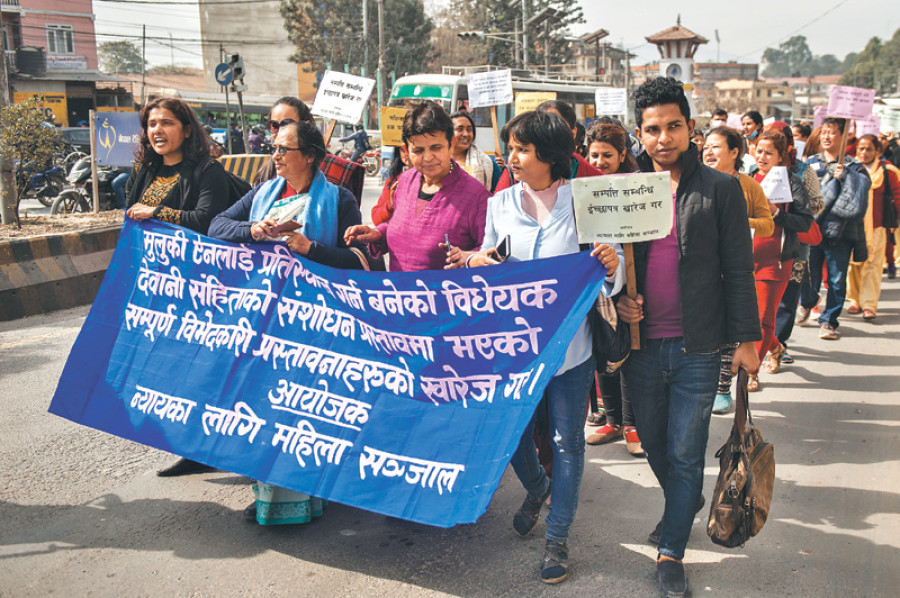Miscellaneous
Civil Code Bill draws flak from rights advocates
Human rights activists and civil society leaders have objected to a provision of replacement bill of Civil Code that discourages women to remarry after divorce.
Human rights activists and civil society leaders have objected to a provision of replacement bill of Civil Code that discourages women to remarry after divorce.
The proposed provision states that if a divorcee or widow remarries, then she has to return the alimony to her first husband.
In addition to this, the bill also prevents women from choosing her marital rights over the men she has a child with. As per the bill, a woman is supposed to accept the child’s father as her husband even if she chooses to be a single mother.
Women rights activists have said that consent of women should be taken in the above mentioned case. They have also demanded that women must have the right to ask for alimony after divorce.
The Article 81 under Section 3 of Civil Code states that a woman can use either her parents’ or her husband’s name, and, if not proved otherwise, surname of a married woman will be that of her husbands.
Right Activists have argued that women must have freedom to decide their surname themselves.
They submitted an 18-points memorandum to the Legislature-Parliament Speaker Onasari Gharti Magar on Sunday. Terming the proposed bill ‘bigoted’, they demanded the provisions be repealed and women be treated on equal footing.
The Civil Code Bill was introduced as a replacement of Muluki Ain, 1963. But the bill has even withdrawn the rights of women that were in place till now.
“The proposed legal provisions are more conservative than it was in 1963,” said Renu Adhikari, rights activist and Chairperson of Women’s Rehabilitation Centre
(Worec). “Women rights over property, reproductive health, sexual rights, and rights of labour are curtailed in the proposed bill” The rights activists also organised a rally on Sunday in the Capital to protest the bill.
Bhumika Shrestha, a transgender activist, said that the government has been letting down and marginalising the transgender community.
“There has to be a legal recognition for same sex marriage. Until the sex issue is resolved, gender equality is uncertain,” she said.
Although the Supreme Court verdict allows the same sex marriage, the proposed bill has scrapped the provision.
Rights lawyer Subin Mulmi said that the draft is on a final stage of being endorsed. According to him, the amendment proposal has already been passed from the law drafting committee. “It is highly likely that the provisions are endorsed by the Parliament as we have little time for lobbying,” he said.




 9.7°C Kathmandu
9.7°C Kathmandu









